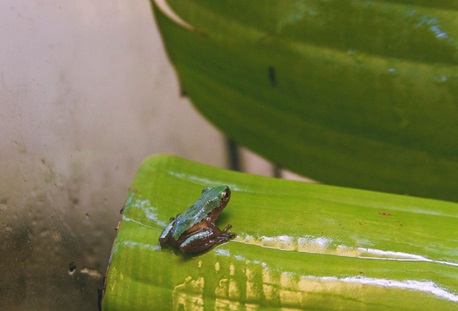
Johannesburg City Parks and Zoo (JCPZ) is commemorating Endangered Species Day (ESD) under the theme ‘Celebrate Saving Species,’ part of the global ‘Reverse the Red’ initiative. To mark ESD, Johannesburg Zoo is highlighting its conservation efforts for species such as the Pickersgill Reed Frog, African Wild Dogs, Wattled Crane, Southern Ground-Hornbill, Owl Education project, and Durban Dwarf Burrowing Skink.
Given the numerous endangered species programmes, Johannesburg Zoo observes May as Endangered Species Month to raise awareness about the urgent need to protect critically endangered species. Globally, individuals, schools, communities, environmental organisations, and zoos unite to call for action in conserving endangered and threatened species.
The zoo serves as an educational hub for zoology and veterinary students and is a leader in environmental education, advocating for the protection of snakes and owls. In 2007, Johannesburg Zoo initiated a conservation project for the critically endangered Pickersgill’s Reed Frogs (PRF), aiming to restore their population and combat malaria in the St Lucia area. This initiative successfully released 800 frogs back into their natural habitat in Mount Moreland, KwaZulu Natal.
Pickersgill’s Reed Frog, scientifically known as Hyperolius pickersgilli, is on the IUCN’s Red List of Threatened Species. Frogs like the Pickersgill’s Reed Frog are crucial indicators of environmental changes, providing scientists with valuable information for ecosystem preservation. Their absence affects biodiversity and raises health concerns.
The zoo’s Amphibian Conservation Project, led by Reptile Curator Mlando Dlomo, continues to safeguard endangered species like the PRF. Johannesburg Zoo, a member of the World Association of Zoos and Aquaria (WAZA) and the Pan Africa Association of Zoos and Aquaria (PAAZA), participates in the Reverse the Red initiative, promoting collaborative efforts to ensure the survival of endangered species.
From its beginnings with a few animals, the zoo now houses 274 species and approximately 2127 individual animals, including some of the world’s rarest and most vulnerable specimens. The success of these breeding programmes is a milestone in securing the survival of critically endangered species.
To stay informed about the latest developments in the City, connect with us on:
X: @CityofJoburgZA
Facebook: City of Joburg
Instagram: @CityofJoburg
TikTok: @CityofJoburg
LinkedIn: City of Johannesburg
YouTube: https://www.youtube.com/@CityOfJoburgZA/videos
Joburg Pulse Radio: https://s3.radio.co/s349cd1429/listen.
SOURCED FROM THE CITY OF JOBURG WEBSITE.

